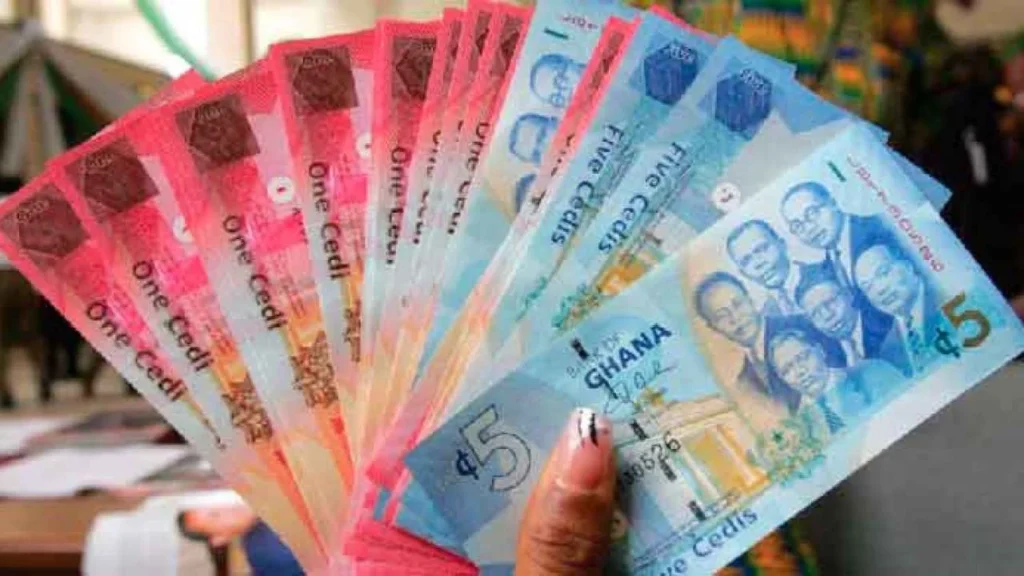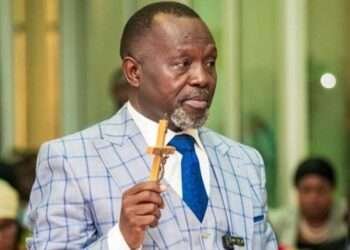The Ghanaian economy, like many in sub-Saharan Africa, has faced significant challenges with currency depreciation in recent years.
The persistent devaluation of the Cedi has impacted inflation, debt management, and economic growth, creating a ripple effect on various sectors of the economy.
In addressing this critical issue, Mr. Courage Boti, an esteemed economist and analyst, provided insights into the underlying causes, potential remedies, and broader implications of the cedi depreciation.
Mr. Boti began by framing the conversation within the broader context of governance and economic management, emphasizing the goals that every nation strives to achieve. He explained;
“Stabilize the cedi, reduce inflation, create more jobs, and foster inclusive growth, create opportunity for all Ghanaians, improve partnerships and investments, making Ghana a preferred destination, prosperity for all. This is what economic management and fiscal policy, monetary policy, and their complementarity is all about. These are the goals every country tries to solve.”
Mr. Courage Boti Economist
While acknowledging that the objectives are not new or unique to Ghana, Mr. Boti stressed the challenges of execution. He emphasized;
“Nothing new, nothing out of the ordinary. So, I cannot sit here and say it’s impossible. In fact, I mean, this is what we must be doing, but the task is a hard one. It’s a herculean one.”
Mr. Courage Boti Economist
Inflation is a key factor affecting the depreciation of the Cedi. Mr. Boti highlighted the historical context and current challenges, stating;
“If you look at inflation, for instance, inflation for a good time under the Erstwhile government had been under the single digit and within the target band. We all know what accounted for inflation spiking up, and there has been effort to correct it. As of the end of 2024, we are at 23.8%, which is outside the Bank’s projections.”
Mr. Courage Boti Economist

He pointed out the missed inflation targets by the Bank of Ghana and the work that remains to be done.
“Government had a 15% or so projection. But the Bank of Ghana was between 13-17 initially, revised it to 18, but they missed – if you look at the Monetary Policy Consultation clause, the upper band of that clause, you realize that it was supposed to be 22, and we are at 23.8. So there is work to do on the monetary side of things.”
Mr. Courage Boti Economist
On the revenue and expenditure front, Mr. Boti stressed the importance of efficiency and prudent fiscal management by the Finance Minister. He stated;
“One word he has used consistently during his vetting has been efficiency in expenditure, quality, and efficiency of expenditure. We may not be able to increase taxes or even introduce new ones at least in this first budget – but what he’s facing is actually 93.4% of revenue already committed to expenditure items.”
Mr. Courage Boti Economist
Fiscal Consolidation and Market Access
Stabilizing the Cedi requires innovative approaches to fiscal consolidation, revenue mobilization, and private-sector engagement. Mr. Boti outlined a few key strategies.
“If we are able to front-load spending, fund-load fiscal consolidation, then quickly regain access to the market, improve our debt ratings, and then probably get access to the market again where we could do some borrowing at maybe not too high a cost, that can open avenues for FDIs to flow into the economy.”
“If we can find a way of unlocking the potential of the private sector, the pension funds, the insurance funds, and all those are the owners of long-term patient capital into critical sectors like road construction and infrastructure development, it can enhance growth.”
Mr. Courage Boti Economist

According to Mr. Boti, If Ghana goes to the concept of smart borrowing where resources are going into self-financing assets and keeping the fiscal stable and within check, then it can be feasible to achieve all of the mentioned prospects within the four years ahead of us.
Mr. Boti underscored the importance of ruthlessness in enforcing compliance to improve revenue generation. He emphasized;
“Ruthlessness in compliance enforcement, I think that is the bit that has been missing in our fiscal administration all this while. We have a lot of taxes. In fact, I dare say that a number of them can go, and we can still raise way more than we are doing if everybody is able to pay their bit.”
Mr. Courage Boti Economist
He added that the existing systems for tax compliance need to be strengthened to deter evasion especially instances of government contracts requiring strict tax clearance certificates.
Despite the potential strategies, Mr. Boti cautioned against overly optimistic rhetoric without actionable steps. He emphasized the need for intentionality and inclusivity in governance. He affirmed;
“It’s about planning, It’s about tact, It’s about how you get Ghanaians on board. It’s about the quality of programs you introduce, It’s about how serious and intentional the government itself is about solving our problems.”
Mr. Courage Boti Economist
In conclusion, according to Mr. Courage Boti, stabilizing the Cedi is not an impossible task, but it requires a multifaceted approach combining fiscal discipline, revenue enhancement, and strategic investments.
The government must be proactive, efficient, and resolute in implementing policies that foster long-term economic stability and growth.
READ ALSO; Richie Mensah Reveals Kuami Eugene’s Status With Record Label





















